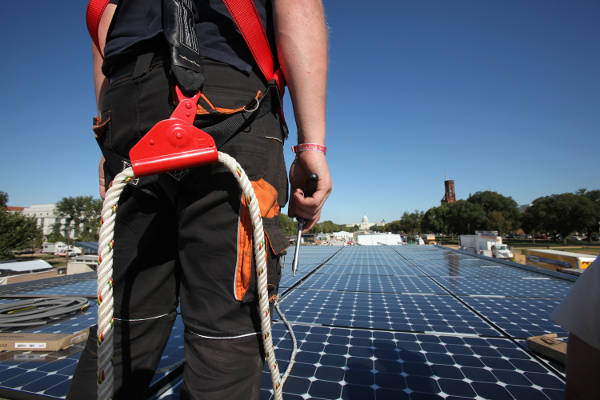New Haven, CT (Yale University) May 02nd, 2016 — Partnering with Project Bright, a student initiative at Yale that focuses on solar energy projects, Taylor and his research team hope to build solar power system at L’école Galilean, a school in Port-de-Paix, Haiti.
This solar power system will provide clean energy to the school and will also power an Integrated Energy Center (IEC), also known as a solar hub, which will provide for basic energy services to the surrounding community. A catastrophic earthquake devastated Haiti’s electricity sectors in 2010, and Haiti still hasn’t recovered from the loss.
“A lot of communities there are very scattered and out of the national grid, so this would definitely be a good place to do this project,” said Akwei Maclean, a post-baccalaureate associate in Taylor’s lab who is heading up the project. “The grid system there is not very developed, so a lot of people aren’t really connected to the grid. And those that are often go days without power.”
The group aims to make its first research trip to Haiti, but they need additional funding. The group has started a fundraising campaign to raise the $50,000 necessary for this part of the project; however, with about three weeks to go, there isn’t much time.
With that funding, the group would make its first trip near the end of May to conduct research, which would include meeting with local partners from World Hope International, KAYA Energy, and Shashamane Sunrise. They would also talk with residents and examine the facilities to determine exactly how to design the solar system and IEC. They would then come back, build the system and install it at the end of the summer.
One possibility, Maclean said, is that they would set up a system in which residents could purchase energy services at a low cost. It’s based on a successful model recently established in India.
The system would likely generate five to seven kilowatts of energy. “With that energy, we can provide light and fans and small equipment like a printer, mobile phone charging and battery charging. It would be enough to provide energy for the school and also provide for other services for the community.”
Julia Zhuang, a member of the student group Project Bright, said the benefits of the project are two-fold. In addition to bringing energy to people who need it, the work will also give students hands-on experience.
“It’s a project where research on, say, solar cells or on renewable energy is being done at a university in the lab,” she said. “Now, there’ s a space to implement it in the real world and we can see how it works.”















Comments